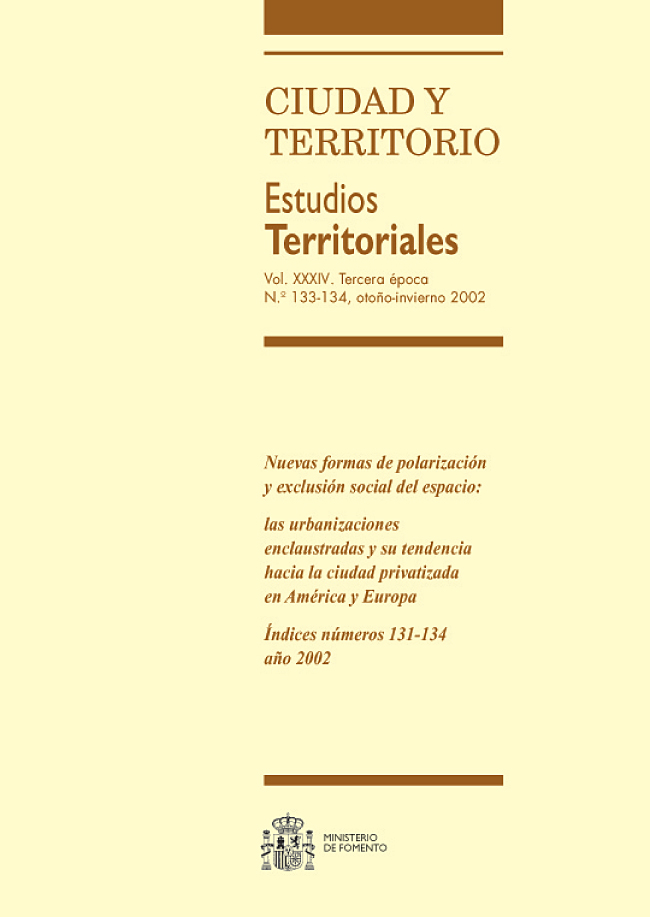The Enclosed Estate in Latin America
Keywords:
Ciudades cerradas, urbanizaciones privatizadas, segregación social, espacio público, Iberoamérica.Abstract
The paper speaks of the recent seminar «Latinoamérica: países abiertos, ciudades cerradas /Latin America:
Wide open Countries with Cities enclosed» recently held in Guadalajara (Mexico) and given over exclusively
to the subject of enclosed or walled in estates. The papers there read dealt with six countries(Mexico,
Argentina, Chile, Ecuador, Peru and Venezuela) and over twenty cities (Sao Paolo, Mexico City, Buenos Aires,
Santiago de Chile, Quito, Lima, Guadalajara, Puebla, Rosario, Hermosillo, Maricaibo, Toluca, Sorocaba,
Uberlândia, Pelotas y Presidente Prudente). The aim was to discover the features of this now universal
phenomenon when it is found in Latin America and centred in upon two of these, namely their exaggerated
seeking for privacy by means of walling themselves in and off, this and the worlds and life styles that have
then developed within them. Both features bespeak two tendencies proper to territory thus developed
namely a knock-on shrinkage on public living space and the growth of selfishness as among citizens. The
paper also aims to set forth a digest of the characteristics and typology proper to each country and metropolitan
area and then underline all that thought they share or are generally perceived as having in common.
Downloads
Downloads
Published
How to Cite
Issue
Section
License
Copyright (c) 2002 Isabel Rodríguez Chumillas

This work is licensed under a Creative Commons Attribution-NonCommercial-NoDerivatives 4.0 International License.
Considering the provisions of the current legislation on Intellectual Property, and in accordance with them, all authors publishing in CyTET give -in a non-exclusive way and without time limit- to the Ministry of Transport, Mobility and Urban Agenda the rights to disseminate, reproduce, communicate and distribute in any current or future format, on paper or electronic, the original or derived version of their work under a Creative Commons Attribution-NonCommercial-NoDerivative 4.0 license International (CC BY-NC-ND 4.0), as well as to include or assign to third parties the inclusion of its content in national and international indexes, repositories and databases, with reference and recognition in any case of its authorship.
In addition, when sending the work, the author(s) declares that it is an original work in which the sources that have been used are recognized, committing to respect the scientific evidence, to no longer modify the original data and to verify or refute its hypothesis. Author(s) also declare that the essential content of the work has not been previously published nor will it be published in any other publication while it is under evaluation by CyTET; and that it has not been simultaneously sent to another journal.
Authors must sign a Transfer of Rights Form, which will be sent to them from the CyTET Secretariat once the article is accepted for publication.
With the aim of promoting the dissemination of knowledge, CyTET joins the Open Journal Access (OA) movement and delivers all of its content to various national and international indexes, repositories and databases under this protocol; therefore, the submission of a work to be published in the journal presupposes the explicit acceptance by the author of this distribution method.
Authors are encouraged to reproduce and host their work published in CyTET in institutional repositories, web pages, etc. with the intention of contributing to the improvement of the transfer of knowledge and the citation of said works.








 Enlace a CyTET en Linkedin
Enlace a CyTET en Linkedin